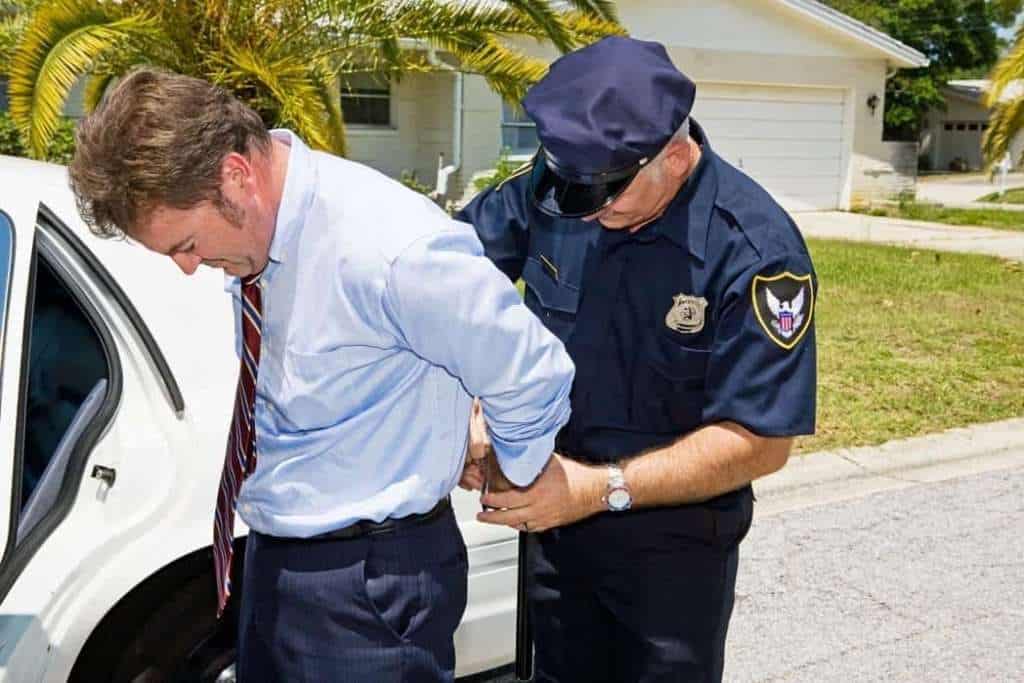When we watch the news, we oftentimes see a scenario whereby a victim is pointing at the accused which would prompt the policeman to immediately arrest the accused and detain him. In movies, we see the policeman knocking on a person’s door and arresting the accused with the oft-spoken phrase “Magpaliwanag ka na lang sa presinto!”. Believe us when we say that these acts are unconstitutional and illegal. Yes, you heard us right. We just busted the myth that you have been harboring for years now. Truth of the matter is, the police just cannot arrest someone without a warrant or without catching the accused in flagrante delicto or in the act of committing the crime.
The general rule is that if you are suspected of a crime, the police cannot just come to arrest you. Even if the victim or a witness points a furtive finger at you, again, the police cannot just arrest you. He would need a warrant of arrest in order to arrest you. How then can a warrant of arrest be secured? A warrant of arrest is issued by a judge after personally evaluating the report and supporting documents submitted by the prosecutor on the existence of probable cause. Normally, this is a result of a preliminary investigation conducted by the prosecutor wherein both parties are given opportunities to file their respective Affidavits. If the prosecutor finds probable cause that the accused has committed the crime, he will file an information in court. Thus, you can see that it is not a quick process and due process is fervently observed.
However, there are exceptions to the rule. A policeman may arrest a person without a warrant under the following instances:
a. When the person to be arrested has committed, is committing or is attempting to commit an offense in his presence;
b. When an offense has just been committed and there is probable cause to believe, based on his personal knowledge of facts or other circumstances, that the person to be arrested has committed the offense;
c. When the person to be arrested is a prisoner who has escaped from a penal establishment or place where he is serving final judgment or temporarily confined while the case is pending, or has escaped while being transferred from one confinement to another
Regarding the first exception, it must be noted that the accused must be committing, attempting to commit or has committed a crime in the presence of the policeman. There have been many Supreme Court cases whereby the arrests were held illegal because the crime was not committed in the presence of a policeman. In Antiquera vs. People, the policemen purposely peered through the door of a house and arrested individuals engaged in a pot session. The Supreme Court invalidated the arrest since this was not an arrest in flagrante delicto. It ruled that no crime was plainly exposed to the view of the policemen that justified a warrantless arrest. They purposely peered through the door and this cannot be classified as a plain view arrest.
Anent the second exception, in Pestilos vs. Generoso, the High Court held that the following questions must be asked: 1) has the crime just been committed when they were arrested? 2) did the arresting officer have personal knowledge of facts and circumstances that the accused committed the crime? and 3) based on these facts and circumstances that the arresting officer possessed at the time of the accused’s arrest, would a reasonably discreet and prudent person believe that the crime was committed by the accused? If the answers to these questions are all in the affirmative, then a warrantless arrest can be done. Thus, in the case of Posadas vs. Ombudsman, the Supreme Court held that the NBI agents cannot arrest the students suspected of being the principals in a hazing incident resulting to the death of a neophyte, without a warrant of arrest. It added that the arrest made 3 days after the crime and based on the supposed identification of witnesses cannot constitute as personal knowledge of the NBI agents to justify the warrantless arrest.
As citizens, we have rights under the Constitution against abuses committed by government officials, including police officers. One of these rights is the right to be secure in our persons. Our liberty is ardently protected by the Constitution. As such, it cannot be unjustly trampled upon by the government. Know your rights!
Nicolas & De Vega Law Offices is a full-service law firm in the Philippines. You may visit us at the 16th Flr., Suite 1607 AIC Burgundy Empire Tower, ADB Ave., Ortigas Center, 1605 Pasig City, Metro Manila, Philippines. You may also call us at +632 4706126, +632 4706130, +632 4016392 or e-mail us at info@ndvlaw.com .

